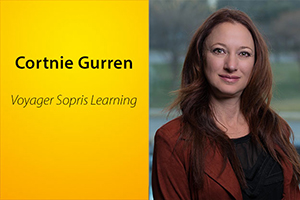Summer Learning: For Students Only? Part Two
by Cortnie Gurren on May 29, 2019

Learn About LETRS Professional Development
The clock is ticking. You can’t keep your brain from counting the days until you have to return to work. You are wondering what you will be asked to do upon your return: Is there a new curriculum you have to learn? Has your grade level changed? All of the unknowns and what-ifs are flooding your mind. This leads us to the next steps in our summer essential learning.
1. Take care of YOU!
Teachers not only facilitate learning, but also influence a child’s social and emotional development. How can we do that if we are stressed? Let’s begin by practicing Mindfulness. According to Roeser, R.W., Skinner, E., Beers, J., & Jennings, P.A. (2012), Mindfulness is a state of active, open attention to the present moment. Being mindful means observing one’s thoughts and feelings from a distance, without judging them as good or bad. It has been related to reducing teacher burnout, negative affect, sleep-related impairment, and daily physical symptoms. Listed are a few tips to practice Mindfulness, even during the work day:
- Take one minute of consciously connecting with one of your senses
- Feel gratitude by paying attention to the positive parts of your day
- Focus your attention on your breath; inhale, exhale
- Get outside and take a breath of fresh air throughout the day
2. Now that we have found a balance, let’s get back to planning.
In Part One of this blog, I introduced the book, Visible Learning for Literacy, written by, Fisher, D., Frey, N., Hattie, J. (2016). If you have tackled this read, then you have begun to understand the difference between Surface Learning, Deep Learning and Transfer Learning, and why each stage holds its own importance. Let’s recap:
Surface Learning—involves simply scraping the surface of the material being studied, without carrying out any deep processing of the material.
Deep Learning—when the knowledge gained in Surface Learning is then used to relate and extend ideas.
Transfer Learning—when knowledge is applied to new tasks and situations.
While the ultimate goal is for our students to reach the level of Transfer Learning, we have to start with the first step. So, let’s focus our attention on Surface Learning. As you begin to plan your first unit of study this fall, start with the learning objective. Ask yourself these questions:
- What background information do my students need to successfully meet these objectives?
- What information might they already have?
- What additional steps do I need to take to ensure my teaching is understandable to my students?
Remember, when introducing a new topic or skill, Surface Learning is essential to move into a deeper learning and eventually Transfer Learning. Now, I know you are thinking to yourself: “I have to keep my students moving through content.” “I can’t spend all my time at the surface level.” You are correct, but be precise in your timing, provide specific feedback, and don’t be afraid to repeat practices, as Surface Learning fosters initial acquisition of skills.
3. The importance of summer learning for teachers.
- Refine your current skills
There is always something new to learn. Much like we want our students to move beyond Surface Learning, we too can hone in and dig deeper into our own teaching methods. This is a great time to reflect on our own practices, and choose an area that you can enhance in your instructional systems. - Gain new instructional methods
Do you find yourself repeatedly using the same strategies, yet the students still just aren’t getting it? Research new approaches to student learning, such as brain-based learning. Brain-based learning is taking the knowledge you have about the way a brain learns and making your instructional decisions with that knowledge in mind. This ties back into what we have been addressing with being timely in our instruction. We can have the best lesson plans on paper, but we have to think about and instruct to the student learner and change those plans accordingly. I urge you to read, Brain-Based Learning: The New Paradigm of Teaching, by Eric Jensen, to learn more. - Career Advancement
During the school year, we are so busy with our daily obligations that we often run short on time for filling our own bucket. If you are looking to add that next endorsement or degree, or maybe you are looking to move into a leadership role, summer is the best time to get that course work done.
I am going to leave you with a quote from Hattie (2016). “Every child deserves a great teacher, not by chance, but by design.”
Have an amazing 2019–2020 school year and don’t forget to be mindful in all that you do.

